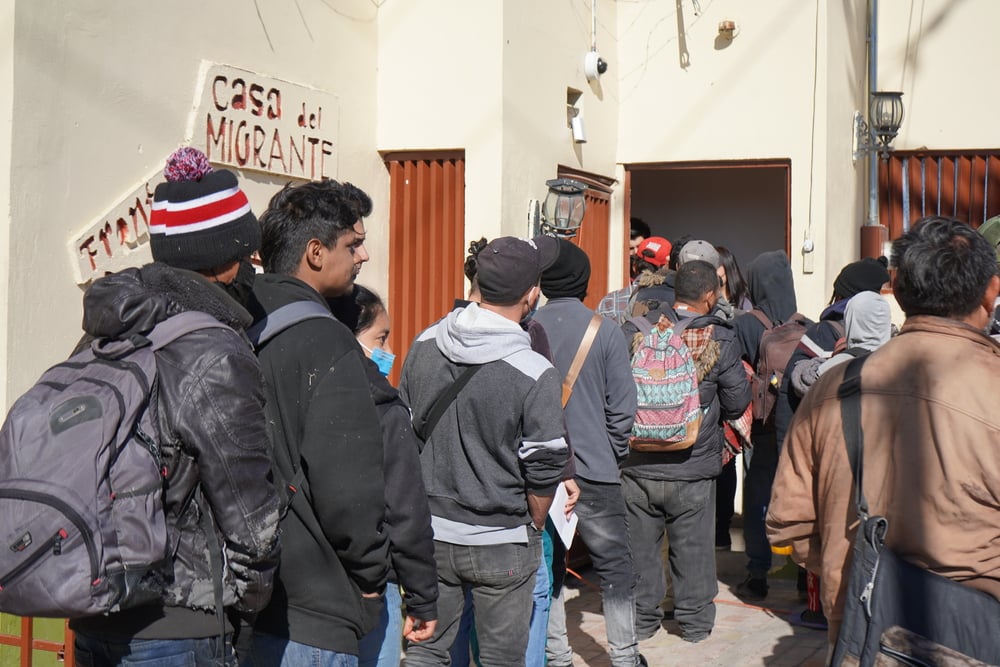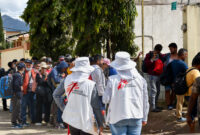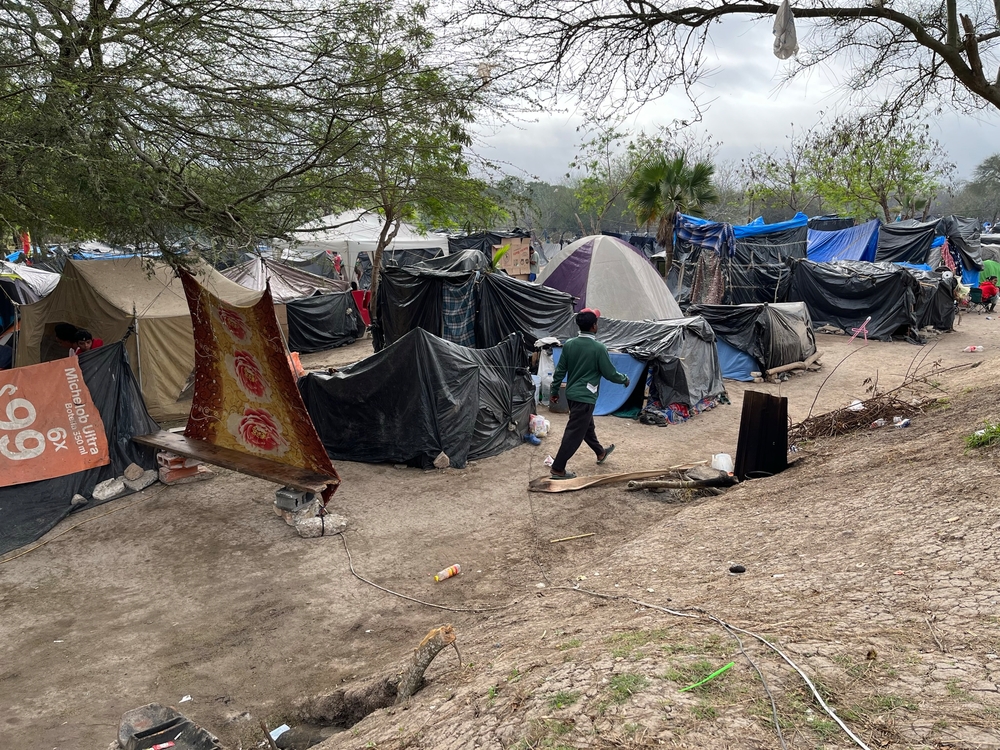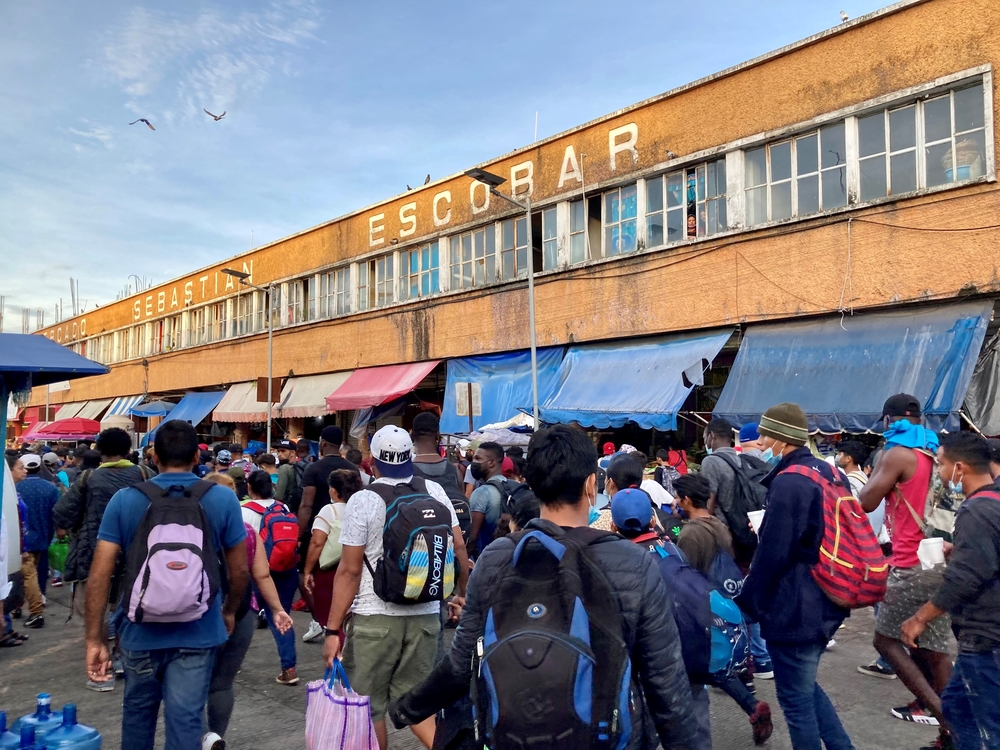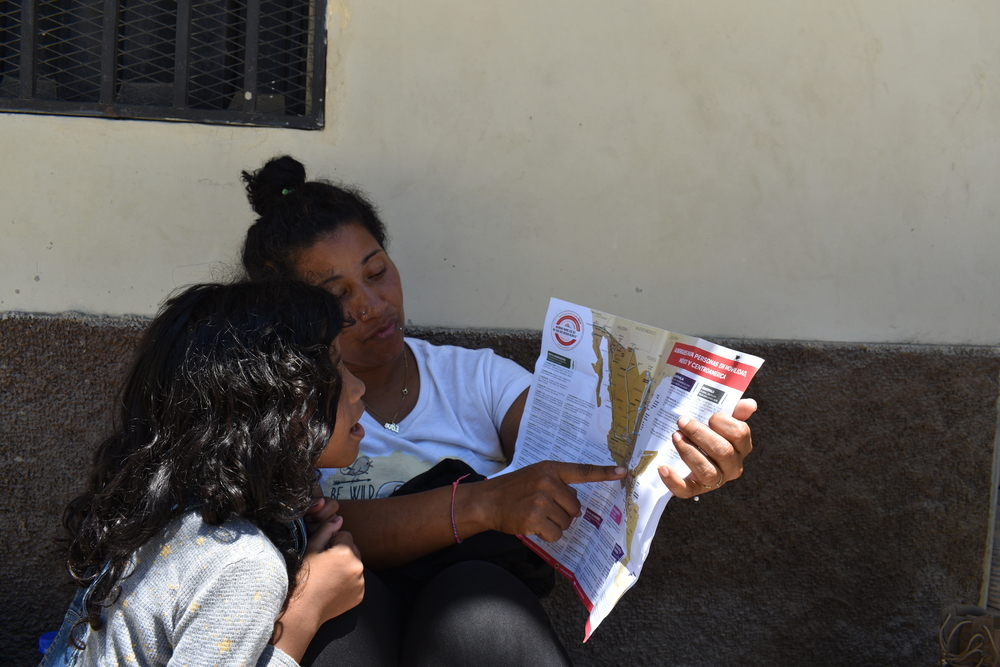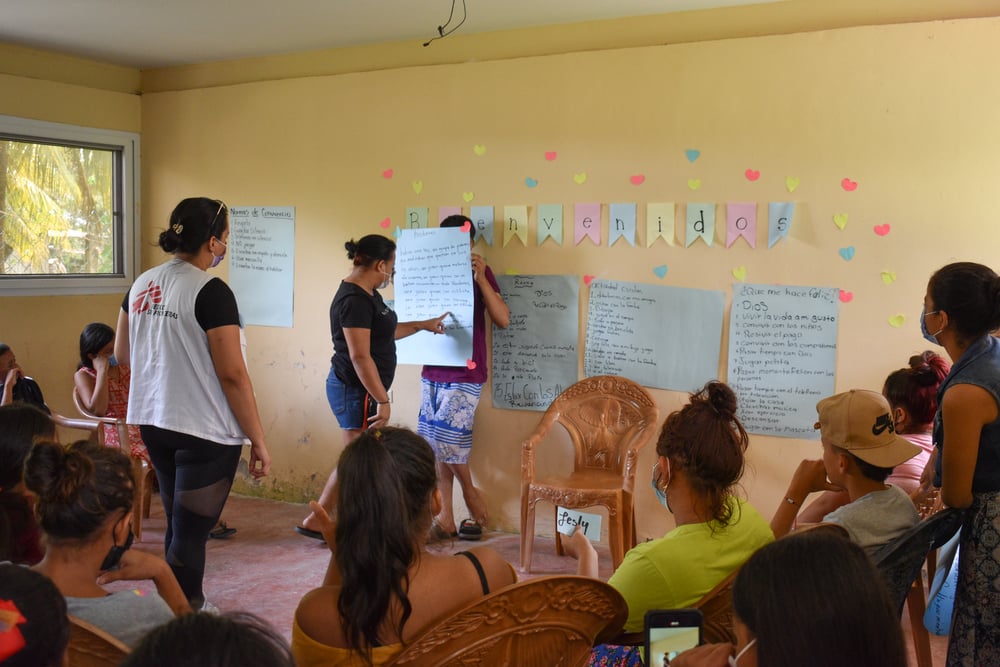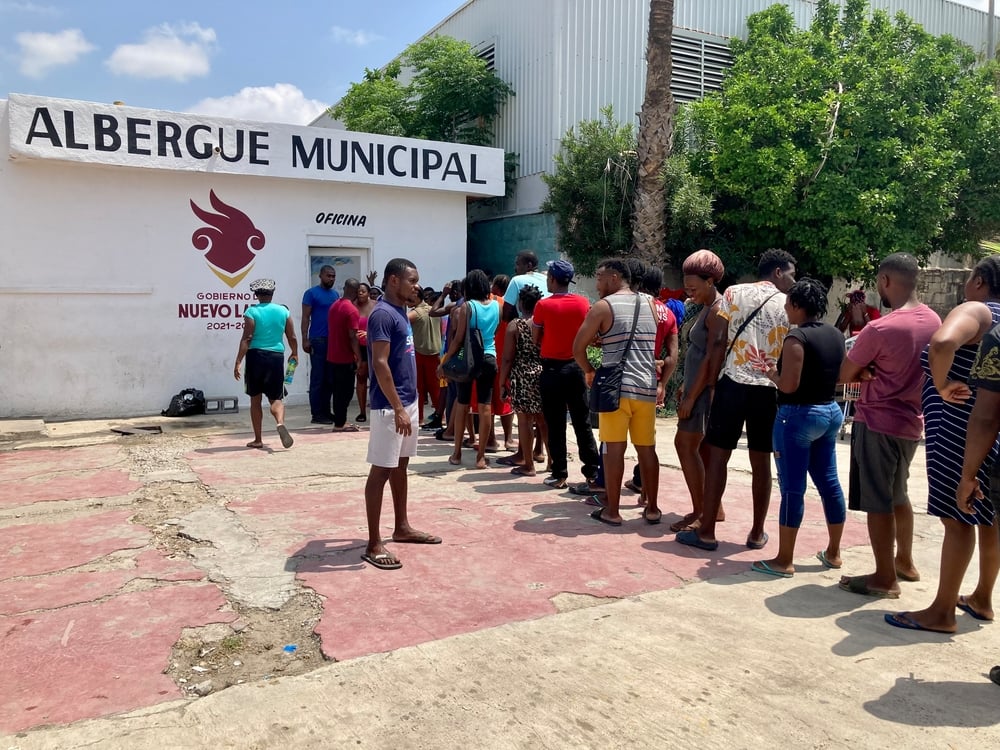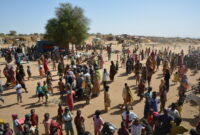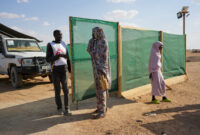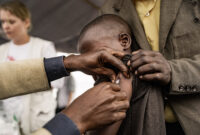The human cost of Title 42: Stories from the US-Mexico border
For two years, under a policy known as Title 42, the United States government has used the COVID-19 pandemic as an excuse to close its southern border to asylum seekers. This devastating policy has exposed highly vulnerable people to more violence and danger.
Title 42, invoked by the Trump administration in March 2020 and repeatedly extended by the Biden administration, allows the blocking and rapid expulsion of people seeking protection at the US border. The policy has been used to authorize over 1.45 million expulsions from the US to dangerous cities along the US-Mexico border, where people seeking safety are abandoned with limited access to shelter and basic services and at constant threat of violence and extortion at the hands of criminal gangs or local police.
Every day, Doctors Without Borders/Médecins Sans Frontières (MSF) teams in Mexico witness the threats and fear that asylum seekers and migrants face due to this policy. For two years MSF and numerous medical experts have repeatedly stated this fact: there is no legitimate public health justification for Title 42. It is a xenophobic policy disguised as public health protection that does nothing but put vulnerable people in harm’s way. There is no excuse for continuing to misuse the order to turn away asylum seekers and block their right to seek protection. The Biden administration must end Title 42 immediately.
Below are testimonies from people recently expelled from the United States under Title 42 who are now stranded in Piedras Negras, along the US-Mexico border.
“I would not stay in Mexico. It’s like being in my country.”
Amanda Maribel Sánchez, 28, from Copan y Lempira, Honduras.
Amanda is traveling alone with her two children, ages three and six. She escaped a violent ex-husband and fears for her life if she returns to Honduras. She recounts a harrowing journey north toward the United States, during which she endured violence and degradation, including rape. She has now been in Mexico for a year, struggling to survive and with no access to safe shelter or basic needs. Several weeks ago, she reached the United States, but was quickly expelled and given no opportunity to apply for asylum.

“A few weeks ago, we jumped into the river. The current swept us away, but we managed to cross (to the United States). Later, immigration stopped us. In the detention center, they made us throw away all our things, clothes and everything. They even took a chain from me, a rosary.
We asked them for asylum and I told them I could not return to Honduras. I asked them for a phone call to speak to the consulate and they did not give it to me. They just told me there wasn’t asylum for young children.
In Piedras Negras, we have to hide. We cannot go out on the street because the police will persecute us. They chase us as if we were animals, and we have to give them money so they don’t arrest us. In the shelters they only give us food, we have to sleep on the street or in abandoned houses, but the police chase us there, too.
We live in an abandoned house. We sleep on the floor without blankets. It’s been very hard because my daughter is very thin, my son is always dirty, and I am, too. They are without school, without medicine, because they close their doors on us and don’t want to help. We are very hungry.
What I wish for the most is to arrive there [in the United States] to work so that he [her abuser] doesn’t find me and that my children grow up. I wouldn’t stay in Mexico. This is like being in my country.”
“We are human beings in need.”
Marvin Ulloa, 37, from San Pedro Sula, Honduras.
Marvin is traveling with his wife and two-year-old daughter. He fled Honduras in April, 2021, fearing for his life after a relative was killed. He was denied asylum in Mexico and crossed the river to reach the United States in February. He was briefly held in US custody. He and his family are living in fear in an abandoned house in Piedras Negras and are always at risk of being run off by local authorities. There are no shelters, he says, and the ones that are available he can’t afford. Below he describes physical abuse in US detention and the deplorable living conditions for asylum seekers expelled to Mexico.

rong>
“The night of February 13 we crossed the river into the United States and the immigration police caught us. They beat me. I had already tried to cross other times and they had not treated me so badly. This time they threw away all the things I brought, important things. Maybe they don’t matter to them, but they do to me.
I called them out and they got mad. They grabbed me by the neck, threw me on the ground and handcuffed me. I had my face on the ground and he [an immigration agent] put his foot on my head. More agents arrived and beat me. My daughter covered her eyes and started to cry, but they didn’t care. My wife was crying too and tried to stop it, but they grabbed her and sat her back down.
They took us to a room. I asked if there was a lawyer who could help defend me and they said no. They didn’t explain anything to me, they didn’t even check to see if I was okay. They put a mat on the floor and I stayed there, enduring the cold and the fear. I didn’t sleep well, my whole body ached. My head was swollen. At 7:00 in the morning they came to leave us here at the border.
There were no female agents to register women. There were only men there who touched them, checked them and touched their breasts. They were doing it to a woman, they were touching her.
I’m worried about my health, that I’m going to lose my memory. Yesterday I saw someone I knew and I didn’t recognize him. This whole part [his head] here is hurting me. That’s why I want to go see MSF, so they can give me medicine. I was very affected by the beating they gave me in the detention center in Eagle Pass [Texas]. There are cameras there and I think that what they did to me was recorded.
Yesterday the inspectors, immigration and the police went to the abandoned house. They don’t want us to be there, but we’re on the street and they kick us out. My wife goes out to beg with the girl and they think we are sneaky. We are not thieves. We are human beings in need.
I want to cry but I pretend to be strong. As a man, I could deal with this, but with a family, I don’t want them to suffer here, enduring hunger and cold.
I’d like to reach the United States. I want to leave somewhere else, to another country where someone could help us. There’s no help here.”
“We fear for our lives.”
José María Paz Celaya, 31, from San Pedro Sula, Honduras.
José left Honduras due to poor economic conditions and threats from local gangs. He worked in transportation, an industry in which many people are subject to extortion from gangs in Honduras. After the third attempt on his life for not paying, he left his children—ages 12, 9, and 6—with his mother and father and set off for safety in the United States. He traveled by train and truck and was imprisoned in Mexico for several months, where, he alleges, he was abused, both mentally and physically. He attempted to cross the border to the United States and was quickly detained and beaten in US custody, he says.

“The immigration agent asked me if I had marijuana and I told him that I didn’t smoke. He insisted and I answered the same. He wanted to undress me and I told him that this was forbidden, that this is undignified. “You don’t make the rules here, you’re not in your country, f***ing immigrant,” he told me. “Okay,” I told him, “but you are not going to undress me.” And I did not let myself be undressed.
They hit my face, they threw me on the ground, and I fell face-first. They handcuffed my hands and feet like I was a criminal and had me kneel for an hour. They don’t ask you anything, not your name or surname. They don’t ask you why you come from your country, if you were threatened in your country, they don’t care.
In Piedras Negras it’s horrible, you live under the threat that [criminals] will kidnap you. We live with a terror of walking down the street, and since we wear backpacks, they know we are migrants and they want to kidnap us, but we don’t have money. We came from our countries, migrating to escape the threats not knowing that we are entering a situation that is sometimes worse.
Sometimes I don’t sleep for fear that something will happen to me. We stayed in an abandoned house around here with three other fellow travelers. Two of us sleep and two stay awake to take care of each other. Most of us here fear for our lives.”
